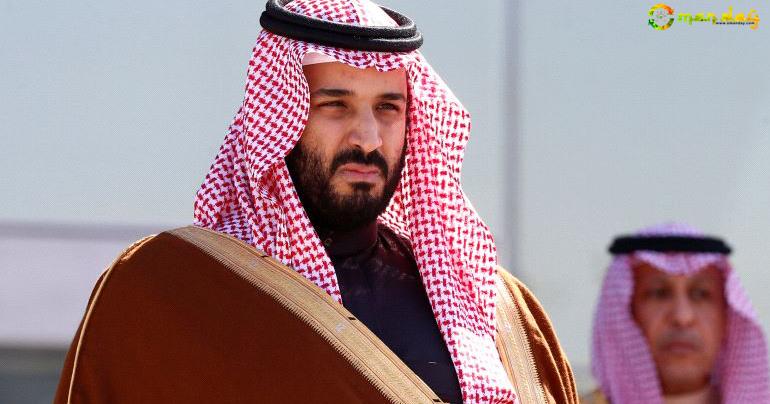Saudi Arabia’s Arab Spring, At Last
I never thought I’d live long enough to write this sentence: The most significant reform process underway anywhere in the Middle East today is in Saudi Arabia. Yes, you read that right. Though I came here at the start of Saudi winter, I found the country going through its own Arab Spring, Saudi style.
Unlike the other Arab Springs — all of which emerged bottom up and failed miserably, except in Tunisia — this one is led from the top down by the country’s 32-year-old crown prince, Mohammed bin Salman, and, if it succeeds, it will not only change the character of Saudi Arabia but the tone and tenor of Islam across the globe. Only a fool would predict its success — but only a fool would not root for it.
To better understand it I flew to Riyadh to interview the crown prince, known as “MBS,” who had not spoken about the extraordinary events here of early November, when his government arrested scores of Saudi princes and businessmen on charges of corruption and threw them into a makeshift gilded jail — the Riyadh Ritz-Carlton — until they agreed to surrender their ill-gotten gains. You don’t see that every day.
We met at night at his family’s ornate adobe-walled palace in Ouja, north of Riyadh. MBS spoke in English, while his brother, Prince Khalid, the new Saudi ambassador to the U.S., and several senior ministers shared different lamb dishes and spiced the conversation. After nearly four hours together, I surrendered at 1:15 a.m. to MBS’ youth, pointing out that I was exactly twice his age. It’s been a long, long time, though, since any Arab leader wore me out with a fire hose of new ideas about transforming his country.
We started with the obvious question: What’s happening at the Ritz? And was this his power play to eliminate his family and private sector rivals before his ailing father, King Salman, turns the keys of the kingdom over to him? It’s “ludicrous,” he said, to suggest that this anti-corruption campaign was a power grab. He pointed out that many prominent members of the Ritz crowd had already publicly pledged allegiance to him and his reforms, and that “a majority of the royal family” is already behind him. This is what happened, he said: “Our country has suffered a lot from corruption from the 1980s until today. The calculation of our experts is that roughly 10 percent of all government spending was siphoned off by corruption each year, from the top levels to the bottom. Over the years the government launched more than one ‘war on corruption’ and they all failed. Why? Because they all started from the bottom up.”
So when his father, who has never been tainted by corruption charges during his nearly five decades as governor of Riyadh, ascended to the throne in 2015 (at a time of falling oil prices), he vowed to put a stop to it all, MBS said:
“My father saw that there is no way we can stay in the G-20 and grow with this level of corruption. In early 2015, one of his first orders to his team was to collect all the information about corruption — at the top. This team worked for two years until they collected the most accurate information, and then they came up with about 200 names.”
When all the data was ready, the public prosecutor, Saud al-Mojib, took action, MBS said, explaining that each suspected billionaire or prince was arrested and given two choices: “We show them all the files that we have and as soon as they see those about 95 per cent agree to a settlement,” which means signing over cash or shares of their business to the Saudi state treasury.
“About 1 per cent,” he added, “are able to prove they are clean and their case is dropped right there. About 4 per cent say they are not corrupt and with their lawyers want to go to court. Under Saudi law, the public prosecutor is independent. We cannot interfere with his job — the king can dismiss him, but he is driving the process ... We have experts making sure no businesses are bankrupted in the process” — to avoid causing unemployment.
“How much money are they recovering?” I asked.
The public prosecutor says it could eventually “be around $100 billion in settlements,” said MBS.
There is no way, he added, to root out all corruption from top to the bottom, “So you have to send a signal, and the signal going forward now is, ‘You will not escape.’ And we are already seeing the impact,” like people writing on social media, “I called my middle man and he doesn’t answer.”
The stakes are high for MBS in this anti-corruption drive. If the public feels that he is truly purging corruption that was sapping the system and doing so in a way that is transparent and makes clear to future Saudi and foreign investors that the rule of law will prevail, it will really instill a lot of new confidence in the system. But if the process ends up feeling arbitrary, bullying and opaque, aimed more at aggregating power for power’s sake and unchecked by any rule of law, it will end up instilling fear that will unnerve Saudi and foreign investors in ways the country can’t afford.
...[ Continue to next page ]
tag: blog , information
Share This Post






